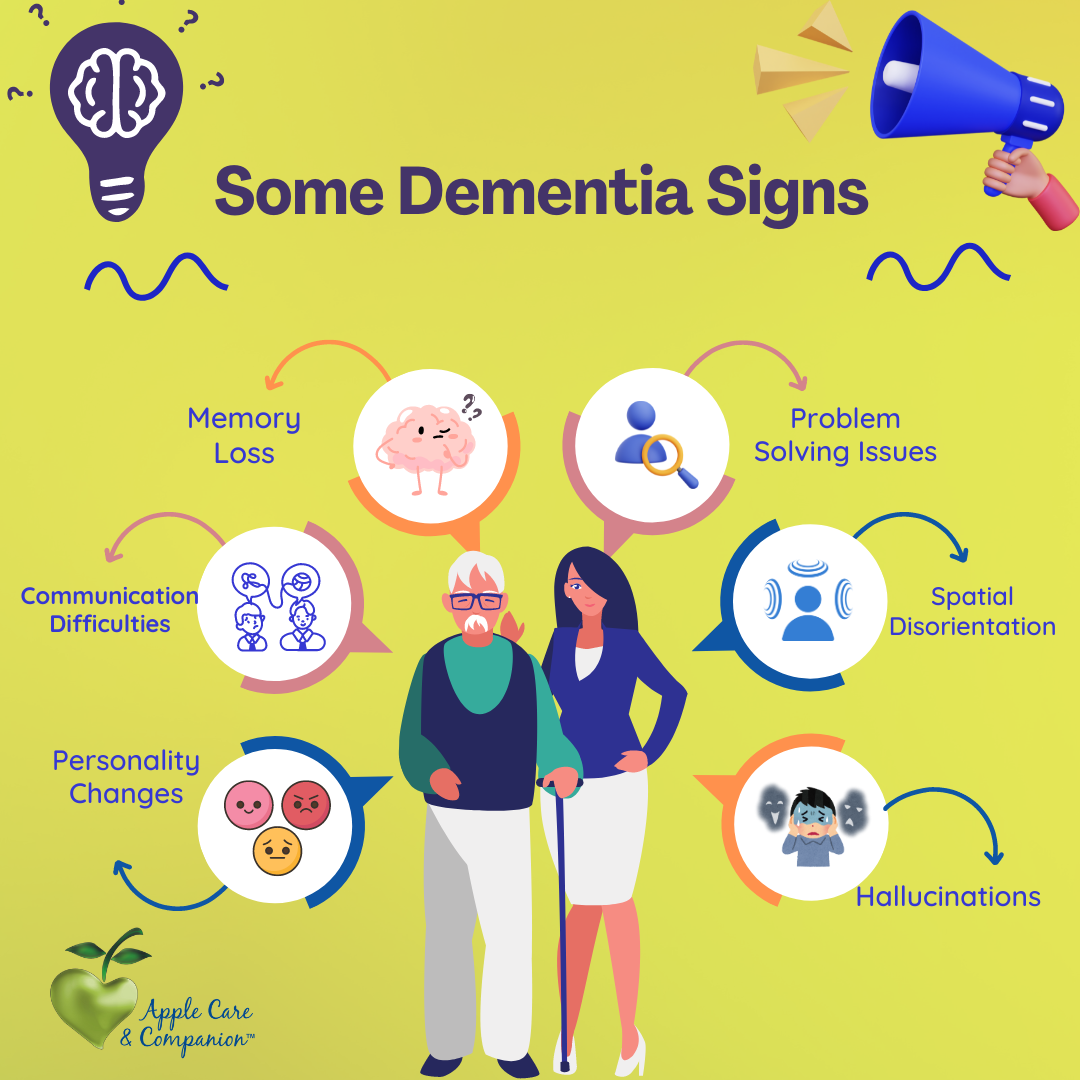Does Grandma have Dementia?
All About Dementia (Part 3 of 4 part series)
Imagine you're visiting your grandmother's house. You've been there many times before, but today something seems different. As you're walking through the kitchen, you notice a pan on the stove that's still hot, even though it looks like it's been there for hours.
When you ask her about it, she seems confused and can't remember turning it on. This could be a sign of dementia, as it indicates a difficulty with short-term memory and task completion.
Later, as you're sitting down to eat, your grandmother starts telling you a story about a childhood friend. You've heard this story many times before, but today she seems to be mixing up the details and forgetting important parts. This could also be a sign of dementia, as it indicates a difficulty in recalling and organizing memories.
Common Signs of Dementia
From memory lapses to changes in mood and problem-solving abilities, staying informed can make a difference.
Below are some common signs to look out for.
Memory Loss
Normal aging: It's common for older adults to have occasional lapses in memory, such as forgetting a name or a phone number. Usually, the name is remembered at a later time. However, if memory problems are becoming more frequent, interfering with daily life, or the older adult doesn’t realize they are forgetting things, it could be a sign of early dementia.
Forgetting recent events: Not remembering what you had for breakfast or where you went for dinner the night before, forgetting appointments, or misplacing items and not realizing these incidents are happening are all causes for concern.
Difficulty recalling familiar information: Forgetting the names of friends or family members, or not being able to remember the lyrics to a favorite song and not recalling them at all can be signs.
Repeating the same stories or questions: Telling the same story over and over again, or asking the same question multiple times can be early signs.
Challenges with Thinking and Problem-Solving
Trouble following plans or completing tasks: Having difficulty following old recipes, getting lost in familiar places, or struggling to manage finances can be potential signs of dementia.
Difficulty understanding or using numbers: Having trouble with basic math, such as adding or subtracting are reasons to talk to a doctor.
Making poor decisions: Making unwise choices, such as suddenly spending too much money, abruptly giving away personal belongings, becoming reckless or acting out of character can be signs.
Communication Difficulties
Finding the right words or losing their train of thought: Struggling to find the right words, or forgetting what they were going to say and never being able to remember, can be signs. It’s normal to not be able to find a word but remember a few minutes later.
Repeating the same words or phrases: Using the same words or phrases over and over again and not realizing they are doing it can be a sign.
Having trouble understanding others: Difficulty following conversations or understanding jokes when they’ve always been able to in the past can be a sign of dementia..
Personality Changes
Increased agitation or anxiety: Becoming easily irritated or upset, or feeling anxious or worried and not noticing these changes can be signs.
Withdrawal from social activities or hobbies: Losing interest in activities that were once enjoyable can be a sign.
Suspiciousness or paranoia: Believing that others are trying to harm them, thinking everyone is out to get them or take advantage of them can be signs.
Changes in mood: Experiencing mood swings, such as becoming more irritable or depressed should be discussed.
Spatial Disorientation:
Getting lost in familiar places: Having trouble finding your way around your own neighborhood or home.
Misplacing objects: Putting things in unusual places or forgetting where you put them.
Difficulty following directions: Struggling to understand or follow written or verbal directions or having difficulty with maps.
Difficulty with Daily Activities:
Problems with dressing: Forgetting to put on clothes, dressing incorrectly or inappropriately, or having difficulty with buttons or zippers.
Challenges with bathing: Difficulty remembering to bathe, or having trouble with tasks like lathering and rinsing.
Issues with eating: Difficulty using utensils, chewing, or swallowing food.
Problems with using the bathroom: Having trouble controlling bladder or bowel functions.
Hallucinations:
Visual hallucinations: Seeing things that aren't really there, such as people, animals, or objects.
Auditory hallucinations: Hearing voices or sounds that aren't real.
Tactile hallucinations: Feeling sensations on the skin that aren't there, such as being touched or pinched.
Olfactory hallucinations: Smelling odors that aren't present.
Normal Aging Symptoms
Memory lapses: Occasionally forgetting names, dates, or recent events.
Difficulty finding words: Sometimes struggling to recall the right word.
Changes in mood: Experiencing occasional mood swings or irritability.
Sleep disturbances: Difficulty falling asleep, staying asleep, or waking up too early.
Reduced physical stamina: Feeling more tired or needing more rest.
Vision changes: Needing more light to read or experiencing blurry vision.
Hearing loss: Difficulty hearing conversations, especially in noisy environments.
It's important to note that these symptoms are considered normal as we age. However, if they become severe or interfere with daily life, it may be a sign of an underlying health condition.
By being aware of the early signs of dementia and seeking professional help when necessary, people can improve their quality of life and receive appropriate support.
Part 1 Understanding Dementia: A Guide to Different Types
Part 2 Importance of Early Detection and Diagnosis
Part 4 Next Steps after Dementia Diagnosis
This information should not be a substitute for professional medical advice. Always consult with a healthcare provider if you have concerns about yourself or a loved one.
